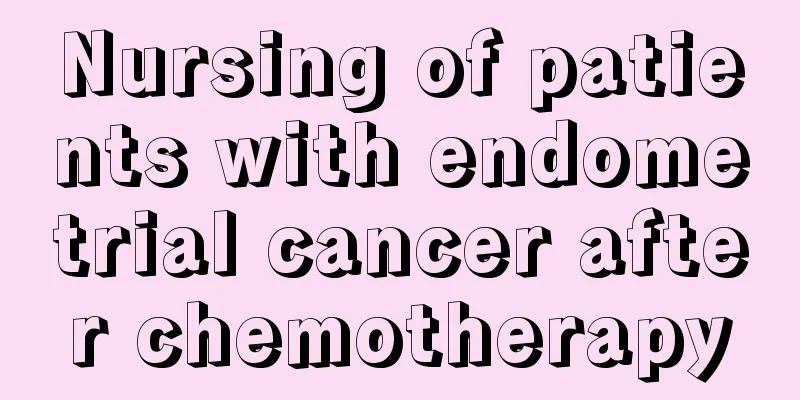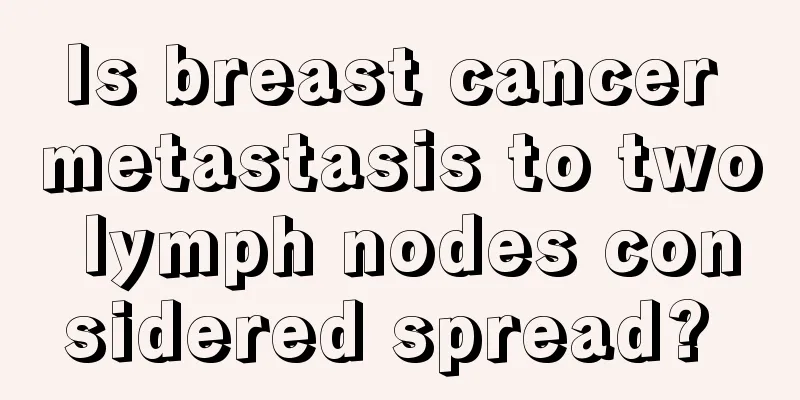Nursing of patients with endometrial cancer after chemotherapy

|
Endometrial cancer is a common tumor of the female reproductive system, and surgery is an important treatment method. Through surgical treatment, the cancerous uterus and other lesions that may have metastasized, including the closely adjacent ovaries, fallopian tubes, and surrounding lymph nodes, can be removed. This can directly eradicate the tumor, treat the disease, or reduce the size of the tumor. After surgery, patients need further adjuvant chemotherapy to prolong their survival, improve their quality of life, and improve their prognosis. In order to ensure the effect of chemotherapy, it is essential to do the corresponding clinical nursing. According to research reports, strict blood sugar monitoring and corresponding nursing intervention for patients with endometrial cancer who receive neoadjuvant chemotherapy can effectively improve the long-term survival rate of patients and reduce the mortality rate. In this study, 27 patients with endometrial cancer who received adjuvant chemotherapy after surgery were actively implemented with comprehensive nursing intervention. Endometrial cancer can have a great impact on women's physical and mental health, and postoperative adjuvant chemotherapy drugs are prone to cause various gastrointestinal reactions and symptoms such as hair loss, which cause a certain psychological burden on patients and are not conducive to the smooth development of treatment. For this reason, attention should be paid to health education and psychological intervention for patients during the treatment process. Help patients objectively understand their own condition and the negative effects of chemotherapy, maintain a good attitude, and maintain a normal chemotherapy process. Some scholars have found through research that giving appropriate psychological care to patients with postoperative chemotherapy for endometrial cancer while receiving drug treatment can achieve satisfactory results. Attention should be paid to the chemotherapy process and appropriate care should be provided, with emphasis on chemotherapy care for patients. During chemotherapy, patients may experience varying degrees of gastrointestinal reactions and adverse reactions to the respiratory and urinary systems under the influence of chemotherapy drugs. For this reason, attention should be paid to appropriate nursing work. Pay close attention to the patient's treatment and strictly follow aseptic operation. Pay close attention to whether the patient has allergies and do a good job of managing the patient's venous vessels. Improve the puncture level, conduct a scientific assessment of the patient before puncture, and perform reasonable venous puncture according to the different properties of the drug, the actual situation of the patient, and the degree of drug stimulation to the blood vessels. Do the corresponding nursing work well, pay attention to observe whether there is fluid extravasation during the infusion process, and deal with local edema in time. For patients with gastrointestinal reactions, provide dietary guidance and guide them to distract their attention appropriately. The results of this study showed that all 27 patients successfully completed the entire chemotherapy process according to the established adjuvant chemotherapy regimen, and no adverse reactions or deaths occurred. The study showed that by implementing comprehensive nursing care for patients, the smooth progress of postoperative chemotherapy was effectively guaranteed, and various adverse reactions were avoided. However, due to the limitations of research time and sample size, the final research results and conclusions may be inaccurate and one-sided. Therefore, this study still has some defects and deficiencies, which need to be continuously improved in future research. In summary, implementing comprehensive clinical care for endometrial cancer patients receiving adjuvant chemotherapy after surgery can ensure the smooth implementation of postoperative chemotherapy, reduce the occurrence of adverse reactions, and ensure the effectiveness of chemotherapy. |
<<: Diet during radiotherapy and chemotherapy for endometrial cancer
>>: How to check for endometrial cancer in the hospital
Recommend
What medicine is good for small cell lung cancer
Now more and more people are suffering from small...
10 purification methods to fully relax your body and mind
Stress, fatigue, anxiety... In your busy life, is...
How to quickly eliminate abdominal bloating
Abdominal bloating is a common clinical problem. ...
What are the methods of vocal breathing exercises?
Being tone-deaf in singing is a fatal flaw. It is...
How to choose Pu'er tea?
Pu'er tea is a cooked tea. Not only does the ...
How to cure insomnia
Insomnia is a very troublesome thing. You want to...
The wound hurts and itches, what's going on?
If there is a wound on your skin, the patient wil...
What to do with lung cancer and lymph node metastasis
What to do about lung cancer and lymph node metas...
What foods can prevent brain cancer
It is said that prevention is better than cure. I...
Which vegetables are rich in vitamin C?
I believe most people like collagen for its beaut...
The advantages and disadvantages of eating chicken feet often
Chicken is an indispensable ingredient in life, b...
After you do this, the disease will stay away from you
Our biggest excuse usually is that we are busy, b...
I have a cough with phlegm. What can I eat to get better quickly?
If you have cough and phlegm, you can alleviate t...
Glycerin and white vinegar beauty method
In daily life, skin care is very important, and a...
How to use clindamycin ointment?
Modern medicines are produced in large quantities...









